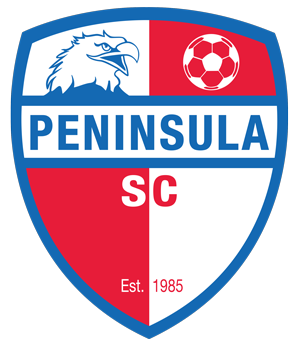From the July 5, 2006, issue of The Technical Area
The following is a list of points of emphasis from a handout given to parents with children in the Mount Laurel (N.J.) United Soccer Association. This handout is designed to minimize and eliminate sideline coaching from parents. We hope that you can adapt some or all of these guidelines in this form or another to your coaching situation.
1. Be positive. Be supportive. Cheer for the team. Encourage all of the players. Keep negative comments to yourself, especially those directed at another parent’s child. Remember that the players are doing the best that they can and that playing good soccer is more difficult than it looks.
2. Do not coach. Let the coaches make adjustments as they see the need. Many times the instruction from a spectator is exactly the opposite of the instruction given by the coach. Allow the players the freedom to make their own decisions and learn from their mistakes. Spectator statements like “Stay Wide,” Clear It,” “Pass The Ball,” “Get Rid of It,” “Move Up,” “Move Back,” etc., tend to undermine the need for players to communicate with each other.
3. Never address players on the other team, except to encourage.
4. Treat the officials with respect. All officials make mistakes. All humans make mistakes. Let the officials be human. Let the coaches approach the officials if they feel the need. The referee may be wrong, but not as often as you are? Have you ever seen a referee change his mind because a parent shouted at him or her?
5. Do not engage is game-related discussions with parents from the opposing team. We will be playing these teams for many years to come. We want to be known in the soccer community as an organization that has class whether we win, lose or draw. The game score will not be remembered. The argument or inappropriate remarks will be.
6. Leave the game on the field. When the game is over, no amount of comment, question or discussion with the players, officials or coaches can change the outcome. Regardless of the outcome, the coaches will evaluate the performance, reinforce the good things and work to correct the things needing improvement.
7. Keep the game fun. Winning is more fun than losing, but each player should enjoy playing because they love the game. Avoid offering bribes or “pumping up” your child. Allow them to become self-motivated. Make sure that you take time to enjoy the game yourself. I have heard comments from some of the team that they dread it when their parents start shouting at the referee. It is noticeable that when some parents get more and more agitated, their child gets more and more withdrawn during the game.
Think about your own job. If you have someone who you knew was going to shout at you every time you made a mistake, wouldn’t you stop putting yourself in the position to make the mistake? That is what happens with some of the players on the team. they would rather not have the ball than risk having it and making a mistake!
The Six Things You Should Say To Your Child
A lot of soccer parents with good intentions give a 30-minute lecture in the car on the way to each match. Too often this lecture is filled with all their child’s supposed deficiencies while including tons of playing advice. They arrive far off their optimal mental state and dread the critique they are likely to hear, whether they want it or not, on the way home. Kids who are massaged in this way tend not to play badly; they just tend not to play, possibly to avoid making mistakes.
Parents should memorize and use the following six simple phrases:
Before the match:
1. I love you.
2. Good luck.
3. Have fun.
After the match:
1. I love you.
2. It was great to see you play.
3. What would you like to eat?

